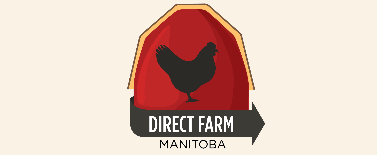Eat Local on a Budget Part 8 – Make Your Own Bread
 Thursday, December 29, 2022 at 9:26AM
Thursday, December 29, 2022 at 9:26AM 
By Janet Kroeker
No time to bake your own bread, you say? Maybe, by the end of this article, I can convince you to try. I've been a bread baker for about 42 years. For a lot of those years I was a stay at home mom with 4 growing children. With frugality a part of the motivation, I baked up to 12 loaves per week, focusing on bread rather than sweets – some jam on bread would have to do. My adult children now reminisce about coming home from school to the aroma of fresh baked bread and enjoying a snack of honey on a slice. If we were out of bread, it felt as though we were out of food – truly the staff of life. When we moved to the prairies 30 years ago, I bought myself a small grain mill and began sourcing local organic grain – another cost saving, but more importantly, resulting in a more nutritious and higher quality bread.
In the last 10 years or so, my baking has evolved to embrace the slow rise bread movement. I was convinced that a slow fermentation process would produce a bread with a more delicate aroma and flavour, not to mention better bioavailabity of the bread's vitamins and minerals. This process starts the breakdown of protein (including gluten) making the bread easier to digest. The best example of this approach is the making of sourdough bread, which we will leave for a future article. An easier method to transition from fast rise to slow rise baking is one a friend introduced me to. The goal is to create a large batch of dough that stores in the refrigerator for up to two weeks. By playing with the temperature and amount of yeast, you can speed up or slow down the rising time – in other words you can adjust it to your own time constraints. This method is described in the book, Artisan Bread in Five Minutes a Day, but you can also find it online.
Does baking your own bread truly allow you to eat local on a budget? The answer is a resounding “yes!” When comparing quality with quality - that is, buying a good quality loaf with baking one - you will spend 3 or 4 times less on home-made bread.
Check whether your local food retailer stocks locally sourced grains and flours, like Prairie Flour Mill products from nearby Elie, Manitoba. Close to where I live, Can-Am Country Corner near Stuartburn on Hwy 59, stocks Prairie Mill flour - organic white, whole wheat and white unbleached. Can-Am is also a place you can order and pick up grains for milling from an organic farm direct – Deruyck's Top of The Hill Farm. Scroll Can-Am's Facebook page to see details about Deruyck's offerings. For people in the Steinbach area, Deruyck's will arrange a drop-off that is easily suitable. Nature's Farm Foodshed on highway 52 on the east side of Steinbach also carries a large variety of pre-milled bulk flours and grains.
Home flour mills are available at Prairie Foods in Plum Coulee and Stoneybrook Pantry in Steinbach. If you intend to bake regularly, this investment will pay for itself fairly quickly.
To try the recipe using the Artisan Bread in Five Minutes a Day method: https://artisanbreadinfive.com/2013/10/22/the-new-artisan-bread-in-five-minutes-a-day-is-launched-back-to-basics-updated/
Look for upcoming bread baking workshops in your community. The Woodmore Women's Institute is planning one in 2023 in the Emerson- Franklin municipality.
Maybe this winter will be your time to become a bread baker. May your kitchen be filled with the sweet delicate aroma of baking bread and your tummy happier with that slice of easily digestible bread. Happy baking.
Brought to you by the Stuartburn Emerson-Franklin Local Food Initiative (Find us on Facebook)


